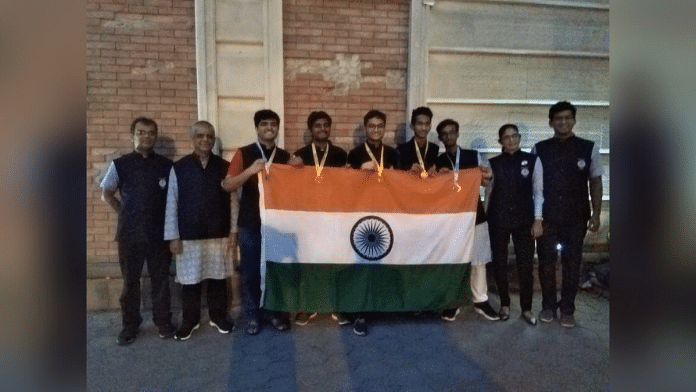New Delhi: India registered a brilliant performance at the 15th International Olympiad on Astronomy and Astrophysics (IOAA) – an annual competition for higher-secondary level students – by clinching third place in the tournament as its students won three gold and two silver medals.
The event, which was held in Georgia’s Kutaisi from 14 to 21 August, saw the participation of 209 students, including five from India. The participants comprised 37 main and 6 guest teams.
Every country can send a team to the Olympiad by submitting a registration fee. There is also an option to send guest teams by paying a little extra.
On the medal table, India and Singapore jointly secured the third position, behind Iran’s guest team which won the second spot with four gold medals and one silver. The west Asian country’s official team snatched first place at the competition, with five gold medals.
The medal winners for India in the Olympiad were: Raghav Goyal (Gold), Mohammad Sahil Akhtar (Gold), Mehul Borad (Gold), Malay Kedia (Silver) and Atharva Nilesh Mahajan (Silver).
Gold medallist Raghav Goyal also won a special prize for securing the highest marks in a question that required participants to work out the dynamics of co-orbiting satellites. The question was deemed the most challenging theoretical question at the competition.
The Indian squad was accompanied by two professors: Sarita Vig (Indian Institute of Space Science and Technology, Thiruvananthapuram) and Ajit Mohan Srivastava (Institute of Physics, Bhubaneswar). It also comprised two scientific observers — an additional team of experts who ratify questions, evaluate answer scripts and mentor the students. The support staff included Dr Shriharsh Tendulkar (Tata Institute of Fundamental Research, Mumbai), who was a gold medallist at the International Astronomy Olympiad in 2002 and 2003.
“The international Olympiads are not restricted by detailed syllabi. But the level of difficulty of the tasks are usually very challenging, much more than in board exams, or other competitive exams,” national coordinator for Science Olympiads Anwesh Mazumder told ThePrint.
In this year’s competition, the theoretical paper included topics such as circumbinary planets, mechanics of co-orbital satellites, accretion around compact objects, the Dyson sphere, protoplanetary disks, expanding nebulae and relativistic beaming.
The data analysis component of the competition had questions related to gravitational waves and galaxy clusters. This section – where students are given numerical data to analyse and make inferences – is unique to the Astronomy and Astrophysics Olympiad and is not asked in other subjects.
Also read: Through Indian telescope, astronomers spot mysterious birth of stars in distant dwarf galaxies



